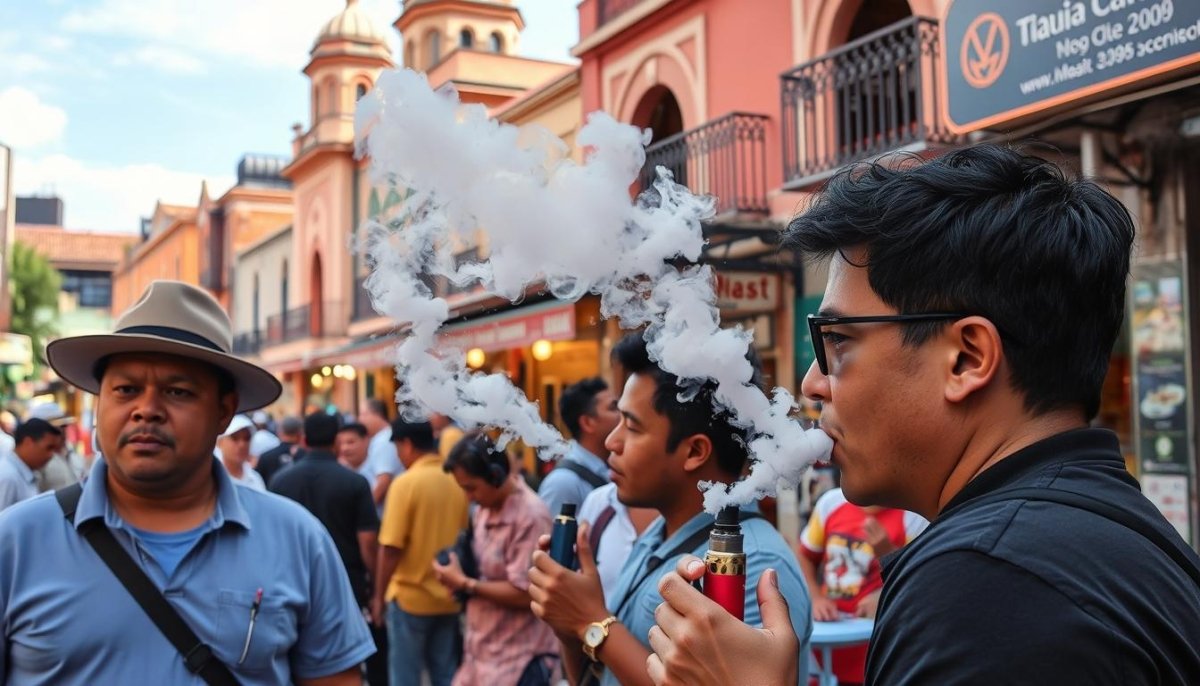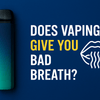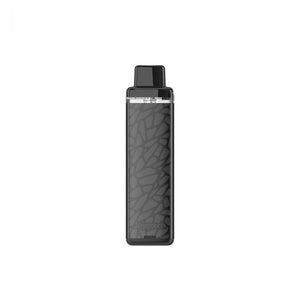Is Vaping Illegal in Mexico: Current Laws & Regulations

Is Vaping Illegal in Mexico: Current Laws & Regulations
Mexico's rules on vaping have changed a lot in recent years. The government has put in place new rules to limit the use of e-cigarettes and vaping products. This article looks at the current laws, the challenges in enforcing them, and what it means for users and businesses.
In 2020, Mexico banned the sale and import of vaping gear and products. This move was due to health worries. But, many people have found ways to get vaping products from black markets.
The government has made its rules even stricter. In 2021, they banned e-cigarettes from being imported. Then, in 2022, they updated their laws to ban tobacco ads and make more places smoke-free. They also made a new law that stops e-cigarettes from being brought in or out of the country.
Even with these new laws, the rules on vaping in Mexico keep changing. Groups like All Vape Mexico and World Vapers' Alliance have protested. They say the ban could make the black market worse and lead to more violence.
Key Takeaways
- Mexico has put in place rules to limit the use of e-cigarettes and vaping products, due to health concerns.
- The ban on vaping products has led to a rise in black market activity, with organised crime groups profiting from the demand.
- Advocacy groups have spoken out against the government's approach, warning that the ban could have unintended consequences, such as increasing criminal activity.
- The legal landscape surrounding vaping in Mexico is constantly evolving, with ongoing changes and challenges to the regulations.
- It is important for businesses and consumers to comply with the changing vaping laws in Mexico to avoid legal trouble.
Overview of Vaping Regulations in Mexico
The vaping scene in Mexico has seen big changes lately. The government has passed laws to control the industry. These laws aim to tackle health worries linked to e-cigarettes and vaping products.
Historical Context of Vaping Laws
In 2020, Mexico banned vaping gear and products. This move was to cut down health risks and stop vaping's rise, especially among young people. It was a bold step to stop e-cigarettes and keep people healthy.
Recent Developments in Legislation
After 2020, laws kept changing. In 2021, a decree banned e-cigarettes from coming into the country. Then, in 2022, a law about tobacco and smoke-free areas came in. Most recently, in 2022, a new law made it illegal to bring in or out e-cigarettes and heated tobacco.
These laws have made things tricky for vaping businesses and users in Mexico. Even though e-cigarettes are banned, there are still unclear rules. This has made it hard to know if vaping products are legal to buy and use.
"The ban on marketing electronic cigarettes or vapes carries implications for commercial, social, and competitive landscapes."
The changing laws in Mexico have hit the vaping industry hard. Fewer products are available in shops, and more are sold on the black market. This makes it tough for people who want to quit smoking but can't find vaping products.
As Mexico keeps working on its vaping rules, the industry's future is unsure. Groups that support vaping say the bans are too strict. They think they stop people from quitting smoking and take away personal freedom. The government, however, wants to keep people healthy and stop young people from vaping.
Legal Status of Vaping Products
In Mexico, vaping products like e-cigarettes and vape pens are in a grey area. The country has started to regulate vaping, but the laws are complex and open to different views.
Are E-cigarettes Legal?
Mexico's General Law on Tobacco Control bans e-cigarettes. But, some places like Cancun have been allowed to sell them. This is thanks to court decisions.
Even with the ban, using e-cigarettes indoors or in public transport is still not allowed. Advertising them is also banned in Mexico.
What About Vape Pens?
Vape pens are treated the same as e-cigarettes in Mexico. Importing, exporting, and selling them is banned. Using them in public is also not allowed. Flavored vape pens, except for tobacco flavor, can't be sold.
Mexico's vaping rules are changing. Groups are pushing for policies that protect health but also respect individual rights. They want to ensure vaping products are safe and of good quality, while giving adult smokers options.
| Vaping Product | Legal Status in Mexico |
|---|---|
| E-cigarettes | Sale, distribution, and manufacture banned, with some exceptions in tourist areas |
| Vape Pens | Importation, exportation, and sale banned, use in public spaces prohibited |
| Flavored Vape Products | Flavored e-cigarettes and vape pens, other than tobacco flavour, not allowed to be sold |
The legal status of vaping in Mexico is complex and changing. Both sides have strong opinions. It's important for policymakers to find a balance between health and freedom.
Age Restrictions for Vaping
In Mexico, vaping products are banned, so there are no age limits for buying e-cigarettes or vaping devices. If sales happen, they might follow tobacco product rules. But, the lack of clear rules means age checks are not standard.
Minimum Age for Purchase
Mexico has banned vaping products. This law stops the legal sale of e-cigarettes and vape pens. It's hard to set a minimum age for buying them.
Age Verification Processes
- Since vaping is banned, there's no standard way to check ages in Mexico.
- People buy vaping stuff from black markets, making age checks even harder.
- Groups like All Vape Mexico and the World Vapers' Alliance want better rules, not a total ban.
As Mexico works on vaping laws, it's key for visitors to know and follow the rules. This includes using and buying e-cigarettes and vaping devices.
| Country | Vaping Age Limit | Fines for Violations |
|---|---|---|
| Spain | 18 years | Up to €2,000 |
| Portugal | 18 years | Up to €750 |
| Italy | 18 years | €27.50 to €550 |
| USA | 21 years | $50 to $500 |
| Australia | 18 years | Up to £24,000 and 2 years in prison |
Visitors to Mexico should follow the rules on smoking and vaping. Breaking these can lead to big fines and legal trouble.
Public Use of Vaping Devices
In Mexico, vaping in public places is strictly limited. The country has set up clean air zones everywhere. These zones cover both smoking and vaping. A 2023 law banned smoking in all public areas, building on a 2008 law that banned it indoors.
This new rule includes places like resorts, hotels, beaches, restaurants, and parks.
Vaping in Public Spaces
In Mexico, vaping is not allowed indoors, in workplaces, or on public transport. Even airports, like Cancun Airport, have special smoking areas. These are outside the terminals, away from where people enter and leave.
Restrictions in Specific Locations
- Selling e-cigarettes is banned, including online sales.
- Advertising e-cigarettes is not allowed, except for showing them for sale.
- Online sales of e-cigarettes are only allowed for certain retailers, by court order.
- Flavoured e-cigarettes, except for tobacco flavour, cannot be sold.
Despite these strict rules, groups like All Vape Mexico and World Vapers' Alliance have protested. They want rules based on evidence, not a complete ban on vaping in public Mexico and e-cigarette use restrictions Mexico.
"The current legislation in Mexico is overly restrictive and fails to consider the potential benefits of vaping as a harm reduction tool. We urge the government to adopt a more balanced approach that prioritises public health while preserving consumer choice."
- Spokesperson, All Vape Mexico
Importation and Sales of Vaping Products
Bringing vaping products into Mexico is not allowed. If you try to bring vaping devices or e-liquids, you could face serious consequences. These include fines over £2,000 or even detention.
The ban started in 2020. It's part of the government's plan to cut down health risks, especially for the young.
Vaping products can't be sold in most places in Mexico. But, some shops in tourist spots might sell them. The rules for who can sell vaping products are not clear.
Regulations on Importing Vaping Supplies
Because of the ban, vaping products are hard to find in official shops. People often buy them from the black market. This can be risky because the products might not be safe or genuine.
Licensed vs. Unlicensed Vendors
Even though vaping sales are banned, some shops in tourist areas can sell them. But, the rules for these shops are not clear. This makes the market confusing and not well-controlled.
Groups like All Vape Mexico and the World Vapers' Alliance have protested against the ban. They say it doesn't help people stop smoking and takes away their freedom. They want better rules for vaping, not a total ban.
The laws about vaping in Mexico keep changing. Travellers need to keep up with the latest rules, especially about where you can smoke.
Health Regulations and Safety Standards
Mexico's vaping industry is in a tricky spot. The country is trying to balance health concerns with the freedom of consumers. Since 2020, Mexico has banned vaping imports and sales. Now, it's focusing on making sure vaping products are made safely and labelled correctly.
Manufacturing Standards for Vaping Products
Because of the ban, Mexico doesn't have clear rules for making vaping products. This means there's no guarantee that vaping products are safe or of good quality. There are no rules about what's in them, how much e-liquid they can have, or how much nicotine they can contain.
Labelling and Consumer Information
Mexico doesn't have strict rules for how vaping products should be labelled. This makes it hard for people to know what they're buying. Especially in the black markets where many vaping products are sold.
Groups like All Vape Mexico and World Vapers' Alliance have been protesting. They want policies that are based on facts and help people stop smoking. The Mexican government is working on new laws to make vaping products safer and more controlled.
"The lack of clear regulations around vaping products in Mexico is concerning, as it leaves consumers vulnerable to potential health risks. Establishing robust manufacturing standards and labelling requirements should be a priority for policymakers."
Government Stance on Vaping
The Mexican government is worried about vaping's impact on health. They are concerned about the long-term effects of vapour inhalation. Also, they worry about more teenagers using e-cigarettes.
They have launched public health campaigns to stop vaping, especially among the young. The government has chosen to ban vaping strictly rather than regulate it.
Official Statements from Health Authorities
The Mexican government strongly opposes vaping. The Federal Commission for the Protection against Sanitary Risks (COFEPRIS) says e-cigarettes and vaping devices are illegal. People caught with these can face fines and even jail time.
COFEPRIS believes vaping is harmful, especially for young people. They compare e-cigarettes to illegal drugs, saying the penalties are as severe.
Influence of Public Health Campaigns
- The Mexican government has launched big public health campaigns to stop vaping, especially among the young.
- These campaigns warn about vaping's long-term health risks and the legal trouble it can cause.
- The goal is to educate people and lower vaping use by raising awareness of the government's stance.
Despite these efforts, vaping products are still widely available illegally in Mexico. A lot of the tobacco market is made up of fake and smuggled goods. This shows the difficulty in regulating vaping and the need for a balanced approach.
Differences Between Vaping and Traditional Smoking Laws
Smoking is legal but regulated in Mexico. Vaping, however, is under stricter rules and faces harsher penalties. The 2023 law bans smoking and vaping in all public places. This shows the government's strong stance against nicotine-delivery devices.
How Smoking Laws Compare to Vaping Laws
Smoking is allowed in certain areas in Mexico. But vaping is more tightly controlled. The import and export of vaping devices and cartridges are banned. This limits the vaping industry in the country.
Penalties for Violations of Vaping Laws
- Fines for vaping in public can be from 1,800 to 36,000 Mexican pesos (about £70 to £1,400).
- Those caught vaping in banned areas might face detention. This shows how serious the penalties are.
- The ban on selling e-cigarettes and vaping devices has made the rules even stricter. Big fines are given for breaking these rules.
Vaping laws are not always enforced as strictly as smoking laws. But, the penalties for breaking vaping laws are severe. This shows the Mexican government's serious effort to limit the use of e-cigarettes.
| Metric | Traditional Smoking | Vaping |
|---|---|---|
| Legal Status | Regulated but legal | Stricter controls, import and export banned |
| Public Use | Permitted in designated areas | Banned in all public spaces |
| Penalties | Fines for violations | Fines up to £1,400, potential detention |
The laws on vaping and smoking in Mexico show the government's efforts to tackle health issues. While smoking is still allowed but regulated, vaping faces stricter rules and penalties. This is to protect the health of the people in Mexico.
Public Perception of Vaping in Mexico
In Mexico, opinions on vaping are mixed. Some see e-cigarettes as a safer choice than regular cigarettes. But, others doubt this, thanks to government warnings about vaping's health risks. This disagreement affects the debate on vaping laws in the country.
Attitudes Toward Vaping among Citizens
Recent studies show that vaping is not common among Mexican teens. Only 6.5% have tried e-cigarettes, and 1.1% use them now. Yet, the way people see vaping is complex. Almost half (47.4%) of people have seen e-cigarette ads online, and 46.8% have seen them elsewhere. This makes many think vaping is more accepted.
Vaping supporters in Mexico have held protests against strict vaping laws. They say these laws don't help people quit smoking and limit freedom. Their efforts have shaped public views and the ongoing debate.
Impact of Public Perception on Legislation
Different opinions on vaping have shaped Mexico's vaping laws. Lawmakers face challenges balancing health concerns, industry interests, and advocacy groups. This complex situation has led to changing laws, with more changes likely as the vaping debate continues.
"Noticing e-cigarette advertisements across more channels was associated with a higher perceived social acceptability of e-cigarette use."
Vaping and Youth Culture
Despite efforts to stop youth vaping, e-cigarette use among teens in Mexico is rising. Critics say the ban has led to more young people buying from black markets. This increases the risk of them getting harmful products.
Recent data shows 100% of middle school students in Mexico had never tried e-cigarettes before. But, 19% have tried them, and 12% use them now. Mexico has about 1.7 million vapers, out of 12 million smokers.
Trends in Vaping Among Young People
The rise in vaping among Mexican youth is linked to U.S. American culture. Studies show a strong U.S. culture influence increases the risk of e-cigarette use among Hispanic teens.
The spread of media, like the internet, also plays a role in more youth vaping in Mexico. This shows the need for specific education to tackle vaping among young people.
Educational Campaigns for Youth
The Mexican government has launched educational campaigns to stop e-cigarette use among youth. But, the ban has pushed young people to the black market. This raises more risks for them.
It's important to find a balance between harm reduction and public health education. Experts recommend investing in information programs. They also suggest making regulations that help reduce harm and discourage smoking.
"Bans in poor countries magnify negative consequences and dangers associated with illicit markets," emphasises O'Gorman, a professor of corporation and succession law at the Universidad Panamericana in Mexico City.
The debate on vaping and youth culture in Mexico is ongoing. Policymakers and health experts must find a way to protect public health, educate, and reduce harm. This is crucial to tackle the growing vaping problem.
Challenges for Law Enforcement
Law enforcement in Mexico is struggling to keep up with the vaping market's growth. The black market, making up 90% of vapes sold, is run by organised crime. This illegal trade, worth about 5bn pesos a year, is hard to control.
Difficulties in Regulating Vaping
There's a big problem with unclear rules and both legal and illegal markets. This makes it tough for Mexican law enforcement to enforce vaping laws. They're trying to balance public health and the rise of vaping law enforcement Mexico.
Compliance Issues with Vaping Laws
Vaping laws differ across Mexico, causing confusion. Customs officials take vaping devices from tourists. But, those caught often just have their devices taken, with fines in some places, especially for e-cigarette regulation challenges Mexico in non-smoking zones.
The ban on e-cigarettes has sparked a black market in Mexico. Prices are between 400 to 1,200 pesos ($20-$60 USD). This black market, worth 5bn pesos a year, is a big problem for law enforcement trying to tackle vaping law enforcement Mexico and e-cigarette regulation challenges Mexico.
"Legalizing ENDS use in Mexico is projected to decrease smoking prevalence by 40.1% in males and 30.9% in females by 2049 compared to maintaining the current national ENDS ban."
The Mexican government sees vaping as a health risk, leading to strict rules. This makes it hard for law enforcement to deal with vaping law enforcement Mexico and e-cigarette regulation challenges Mexico. As smoking laws get tighter, these challenges will likely keep growing.
International Comparison of Vaping Laws
Mexico's vaping laws are very different from many other countries. While some places see vaping as a way to reduce harm, Mexico has banned it almost completely. This ban includes electronic cigarettes and related products.
The United Kingdom's vaping policies are quite the opposite. There, vaping is regulated but also encouraged to help people stop smoking. This is in sharp contrast to Mexico's strict stance on vaping.
How Mexico's Laws Compare Globally
In 2018, Mexico's Federal Commission for the Protection against Sanitary Risks (COFEPRIS) decided that e-cigarettes were banned. This was because they fell under the country's ban on tobacco products. Then, in 2020, an Executive Order banned vaping goods from being imported.
All legal fights by the vaping industry in Mexico have lost. This shows how firm the government is on this issue.
Lessons from Other Countries
- The UK's way of regulating and promoting vaping as a quit-smoking tool is different from Mexico's ban.
- In the United States, there are worries about young people vaping. So, there are stricter rules on age checks and ads.
- Some European countries see vaping as a way to reduce harm, alongside traditional tobacco control.
It's still debated whether Mexico's strict rules are better than other countries' more relaxed ones. As vaping laws around the world change, Mexico's approach will be watched closely.
| Country | Vaping Regulations | Harm Reduction Approach |
|---|---|---|
| Mexico | Near-total ban on e-cigarettes and vaping products | Restrictive, focused on public health concerns |
| United Kingdom | Regulated but promoted as a smoking cessation aid | Permissive, view vaping as harm reduction tool |
| United States | Stricter age verification and marketing restrictions | Moderate, balancing youth access concerns with harm reduction |
Future of Vaping Legislation in Mexico
The future of vaping laws in Mexico is unclear. The government wants to make the ban stronger by adding it to the constitution. But, groups pushing for change say a more detailed regulation is needed.
Potential Changes to Existing Laws
Changes to vaping laws in Mexico might include better quality and sales rules. This could mean a ban isn't the only option. It aims to find a balance between health, freedom, and economy.
Predictions for Regulatory Trends
- Mexico's smoking laws keep changing to focus on safety and health. They also try to respect personal freedom.
- Groups against the ban say it's too strict. They've held protests, asking for rules based on facts and a rethink of the ban.
- People visiting Mexico should know about the laws on smoking and vaping. This helps them follow local rules and respect the culture.
The future of vaping laws in Mexico is uncertain. It will depend on the government's health goals, the push from advocacy groups, and finding a fair balance between rights and the greater good.
| Year | Vaping Regulations in Mexico |
|---|---|
| 2020 | Mexico banned vaping equipment and products from being imported and sold. |
| 2021 | Mexico stopped the importation of e-cigarettes. |
| 2022 | A ban on tobacco ads and smoke-free areas was added. The 2022 law also banned vaping imports and exports. |
| 2023 | A law made all public places smoke-free, building on a 2008 law. |
| 2024 | The ban on vaping sales and imports is still in place in Mexico. |
The debate on vaping laws in Mexico is ongoing. The government is focused on making the ban stricter. But, there's a chance for more detailed, fact-based rules as advocacy groups keep pushing for a fair approach.
Resources for Vaping Consumers
Finding reliable vaping information in Mexico can be tough. But, there are groups that support and advocate for vapers. They help make sure vapers have the right information and support.
Where to Find Reliable Vaping Information
Groups like All Vape Mexico and the World Vapers' Alliance offer helpful resources. They focus on reducing harm and researching vaping. This is a good place to start for accurate, science-backed information.
Health bodies like the World Health Organization and US Centers for Disease Control and Prevention also have useful reports. These reports can help Mexican vapers, even though the laws are different.
Support Groups for Vapers in Mexico
- All Vape Mexico (https://allvapemexico.org/) - A vaping advocacy group that provides information and support for vapers in Mexico.
- World Vapers' Alliance (https://worldvapersalliance.com/) - An international organisation that represents the interests of vapers worldwide, including those in Mexico.
- Local vaping enthusiast groups on social media platforms like Facebook and WhatsApp, where vapers can connect and share experiences.
Vapers in Mexico should be careful and follow local laws. The laws about vaping are changing. Being informed and connected with trusted vaping groups is key. It helps vapers get the right information and support.
Key Takeaways on Vaping Legality
Mexico has made vaping products subject to strict laws. This has greatly affected the e-cigarette industry. Here are the main points about vaping laws in Mexico:
Summary of Important Points
- In 2020, Mexico banned vaping products, citing health risks and youth vaping concerns.
- After the ban, vaping products became scarce in the formal market. This led some to buy from the black market.
- In 2021, Mexico stopped importing e-cigarettes. In 2022, more rules were added, like a ban on tobacco ads and smoke-free areas.
- The General Import and Export Tax law of 2022 banned vaping imports and exports.
- In 2023, a law made all public places smoke-free, further limiting vaping.
Final Thoughts on Vaping in Mexico
Vaping laws in Mexico are complex and changing. There's a debate on the ban's effectiveness. Advocacy groups protest, wanting evidence-based rules instead of a ban.
Despite the ban, vaping products are still available in the black market. Mexico's strict rules aim to protect public health, especially for young people.
| Year | Key Vaping Regulations in Mexico |
|---|---|
| 2020 | Ban on importation and sale of vaping equipment and products |
| 2021 | Prohibition of e-cigarette importation |
| 2022 |
|
| 2023 | Law prohibiting smoking in all public places |
Conclusion
The vaping laws in Mexico are changing a lot for sellers and users. The ban has made the market hidden, which worries people about safety and crime. The future might see more rules than bans, balancing health, freedom, and money.
Implications for Vendors and Consumers
The ban on vaping in Mexico has hurt the industry a lot. Many sellers now work secretly. This makes people worry about the safety of what they buy and the risk of crime.
Users could face big fines and legal trouble if caught vaping, especially in public. The unclear rules make it hard for both sellers and users of vaping products.
Looking Ahead: The Future of Vaping in Mexico
The vaping industry outlook Mexico is still up in the air. The e-cigarette market future Mexico might change soon. The current laws are strict, but there could be a push for softer rules.
This would balance health worries with personal freedom and business needs. The debate on vaping's risks and benefits will keep affecting laws in Mexico. This will impact both sellers and users.
FAQ
Is vaping illegal in Mexico?
Yes, vaping is banned in Mexico. You can't import or sell e-cigarettes and related items. But, a black market exists, making the laws complex.
What are the current vaping laws and regulations in Mexico?
Since 2020, Mexico has banned vaping products. This is to reduce health risks and stop youth vaping. Laws also restrict tobacco ads and make smoke-free areas mandatory.
Are e-cigarettes and vape pens legal in Mexico?
E-cigarettes and vape pens are in a grey area in Mexico. The General Law on Tobacco Control bans their sale and use. Yet, some retailers, especially in tourist spots, might sell them.
What is the minimum age for purchasing vaping products in Mexico?
There's no specific age limit for buying e-cigarettes in Mexico. But, if sales happen, they might follow tobacco product rules, which are 18 years old.
Can you vape in public places in Mexico?
No, vaping is banned in public places in Mexico. A 2023 law makes all public areas smoke-free, including beaches and parks.
Can I bring vaping devices or e-liquids into Mexico?
Bringing vaping products into Mexico is illegal. You risk losing your items, facing fines over $3000, or even detention.
Are there any health and safety regulations for vaping products in Mexico?
Mexico has no specific vaping product regulations. This means there's no guarantee of their safety or quality. There are no rules on ingredients or nicotine levels.
What is the government's stance on vaping in Mexico?
The Mexican government is worried about vaping's health risks. They've banned vaping to protect public health, especially for teenagers. They aim to stop vaping use.
How do vaping laws compare to traditional smoking laws in Mexico?
Vaping laws are stricter than smoking laws in Mexico. A 2023 law bans smoking and vaping in public places. Breaking vaping laws can lead to fines and detention.
What is the public perception of vaping in Mexico?
Opinions on vaping in Mexico vary. Some see it as safer than smoking, while others worry about health risks. Advocacy groups have protested against strict laws.
How is the Mexican government addressing youth vaping?
The government is trying to stop youth vaping. But, some argue the ban has pushed young people to the black market. Educational campaigns aim to discourage vaping among teens.
What are the challenges for law enforcement in regulating vaping in Mexico?
Law enforcement faces big challenges with vaping in Mexico. The black market, run by organised crime, is hard to control. It's worth about 5bn pesos a year.
How does Mexico's vaping legislation compare to other countries?
Mexico's vaping laws are very strict compared to many countries. While some places see vaping as a way to reduce harm, Mexico has banned it almost entirely.
What is the future of vaping legislation in Mexico?
The future of vaping laws in Mexico is unclear. The government wants to strengthen the ban. But, advocacy groups are pushing for a more balanced approach.
Where can I find reliable information and support for vaping in Mexico?
Finding reliable vaping information in Mexico is hard due to the legal situation. Groups like All Vape Mexico and World Vapers' Alliance might help. International harm reduction and vaping research organisations can also provide general information.






